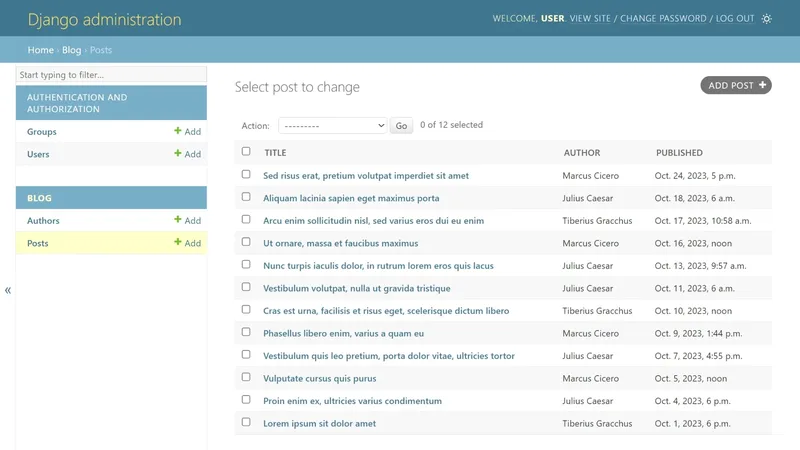Enter Mad Men's 1960s New York office and you'll be greeted by clouds of smoke, fabulous wardrobes, and a secretary explaining that "the men who designed this typewriter made it easy enough for a woman to use".
Needless to say, our office at CodeRed is quite a bit different (although fun fact - the 55 Public Square building is a testament to design from the 50s and early 60s, including some original artwork and fixtures). But even amid the booze-fueled flaws and close-mindedness of Mad Men's bygone era, the show's excellent writing reveals some lessons that are especially applicable for today's "scrappy upstarts" (as Pete Campbell quips). These are just my own opinion, but have all been hugely helpful tactics in my own career and in the success of CodeRed.
1. "It's Toasted"
In a scene where Don Draper is trying to help the tobacco company advertise their product, he asks them how they make it. "We breed insect repellent tobacco seeds, plant them in the North Carolina sunshine, grow it, cut it, cure it, toast it..." the tobacco man replies. "There you go - IT'S TOASTED", Don writes on the board. "But everybody else's tobacco is toasted" the tobacco man bites back. Don calmly replies, "Everybody else's causes cancer. Yours is toasted".
Look at what you do, even though you may take it for granted.
The important takeaway I get from this is to look at what you do, even though you may take it for granted. I always point to cybersecurity for this one. Whether you're a high tech company, an independent consultant, or even a mom & pop store - everyone values their own security. Stating that you value security and take essential measure to protect customer information really means a lot to a customer. It's often the ordinary things you do every day that make your business unique. If security is part of your daily process - ADVERTISE IT! Let your customers know that you care.
2. The Carousel
One of the most tear-jerking scenes in the entire series is undisputedly "The Carousel" scene. Kodak's new invention flips through film slides on a wheel, projecting each picture onto the screen. Don tells a compelling story about memories, alluding to how the circular shape of the device is like a carousel, going round and round and always back home again.
Stories are an incredible tool for explaining technical concepts and abstract ideas.
The genius of this scene goes far beyond its emotional value. We learn the power of a story. Stories are an incredible tool for explaining technical concepts and abstract ideas. I find that telling stories, anecdotes, and metaphors are instrumental not only to good sales, but also improve project management and overall communication. Why not make business a little more entertaining while driving the point home at the same time?
3. The Letter
After the firm's reputation is in the gutter and business is at an all time low, Don pulls a crazy, subjectively heroic move. He pens a full page letter in the New York Times, basically saying "the tobacco client didn't dump us, we dumped the client - and here's why we'll never take a tobacco client again".
Change the conversation from defending your weaknesses to showcasing your strengths.
While I would never condone backstabbing a client, I think the lesson here is about changing the conversation. As a small business, larger clients are often afraid to work with you. And as an individual or a micro-sized business, it can sometimes be difficult to define exactly what you do and why that creates value. Change the conversation from defending your weaknesses to showcasing your strengths. It's partly a confidence problem - don't be afraid to tell the world that you really are the best at what you do. Small businesses are often diamonds in the rough because their team is SO GOOD at doing something but you'd never know it unless you happened to stumble upon them. We've all been to one of those incredible hole-in-the-wall restaurants, right? It's the same idea.
4. Draw Inspiration From Unlikely Sources
Towards the end of the series, Don goes AWOL from his firm, travelling around the country, experimenting with drugs and ideals of the young "hippie" generation. In one of the final scenes, when we all think Don is on the verge of a suicide or emotional collapse, he suddenly dreams up one of the most iconic Coca-Cola ads of all time.
Draw inspiration from unlikely sources.
Once again, the lesson here is not to disappear from reality for weeks on end (even though that would be nice sometimes!). The lesson is to draw inspiration from unlikely sources. Talk to the everyman, the youth, and to people who live in a world different from your own. One of our biggest secrets to success at CodeRed is that we openly talk to as many people as possible about our business ideas. Whether it's a service offering, a new product, or simply identifying trends. I love talking to non-technical folks about cybersecurity because their perspective is always so different and often unexpected. Compiling all this feedback together enables us to build a better product and have a stronger, more valuable impact on our community.
